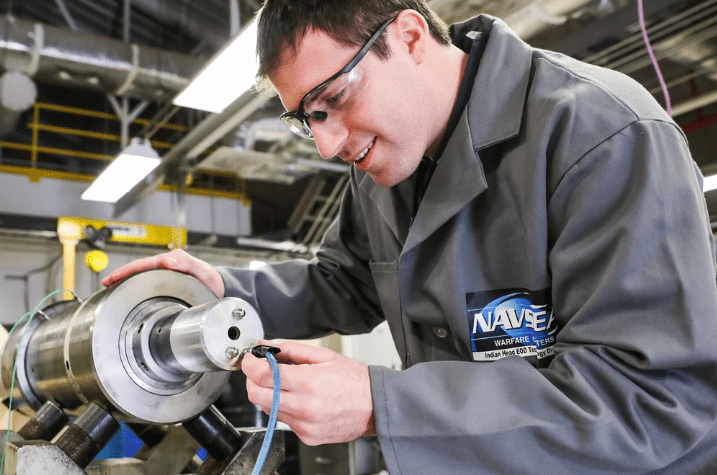Navy moves to jump-start domestic production of energetics tech

In a strategic move to domestically generate new methods and capabilities for making and processing chemicals and other weapons-enabling components for the Navy and Defense Department, the sea service’s expert energetics team officially partnered up with the National Armaments Consortium (NAC) and the American Center for Manufacturing & Innovation (ACMI).
According to a statement shared exclusively with DefenseScoop this week, the Naval Surface Warfare Center Indian Head Division (NSWC IHD) signed a cooperative research-and-development agreement (CRADA) with those two organizations, to ultimately “develop and execute novel small-scale pilot processing techniques focused on critical chemicals and solid propulsion technologies.”
The agreement was signed on Sept. 18, 2023, but it wasn’t announced publicly until now, DefenseScoop confirmed.
As a field activity within Naval Sea Systems Command, NSWC IHD researches, evaluates and produces energetics assets for the U.S. military, and it also enables tools for the services to detect, locate, recover, and dispose of explosive ordnance threats.
CRADAs are essentially vehicles by which federal entities can combine resources and engage in R&D with non-government institutions to drive breakthroughs in topics of shared interest.
Through this newly unveiled agreement, NSWC IHD will collaborate in ACMI Federal’s ongoing pursuits to strengthen the U.S. industrial base, and connect with NAC’s more than 1,100 members to better incorporate energetics materials into American armaments, ammunition and weapons systems.
Notably, this arrangement comes as the Pentagon increasingly relies on competing nations for explosives’ ingredients and confronts vulnerabilities in its own supply chains.
“One of the United States’ most critical national security challenges is to produce more energetic materials here at home,” Ashley Johnson, technical director of NSWC IHD, said in the statement. “Innovative chemical processing and energetics manufacturing capabilities are required to make that a reality. We will continue to partner with industry to develop these technologies to bolster our supply chains and strengthen our national security.”




